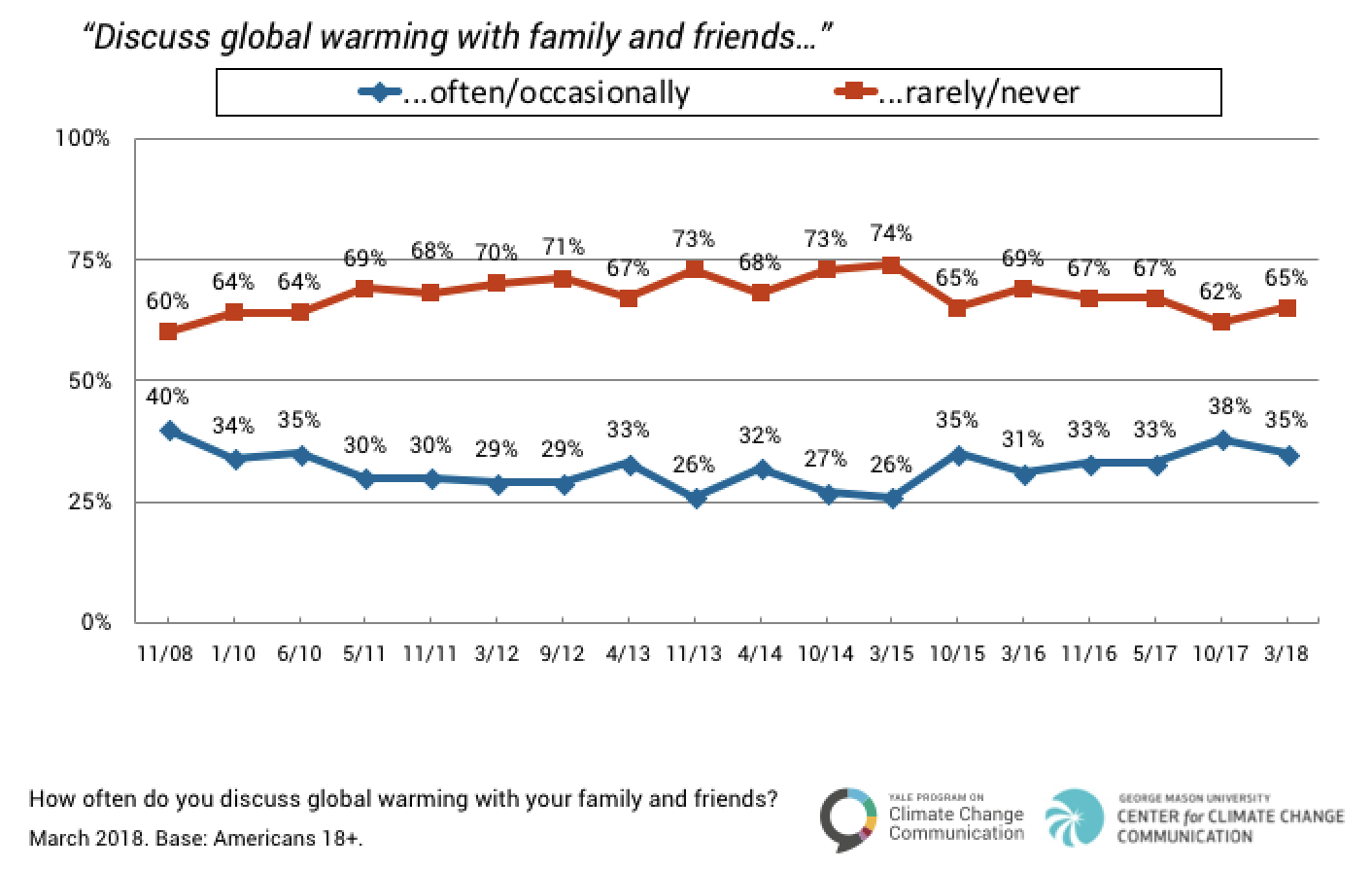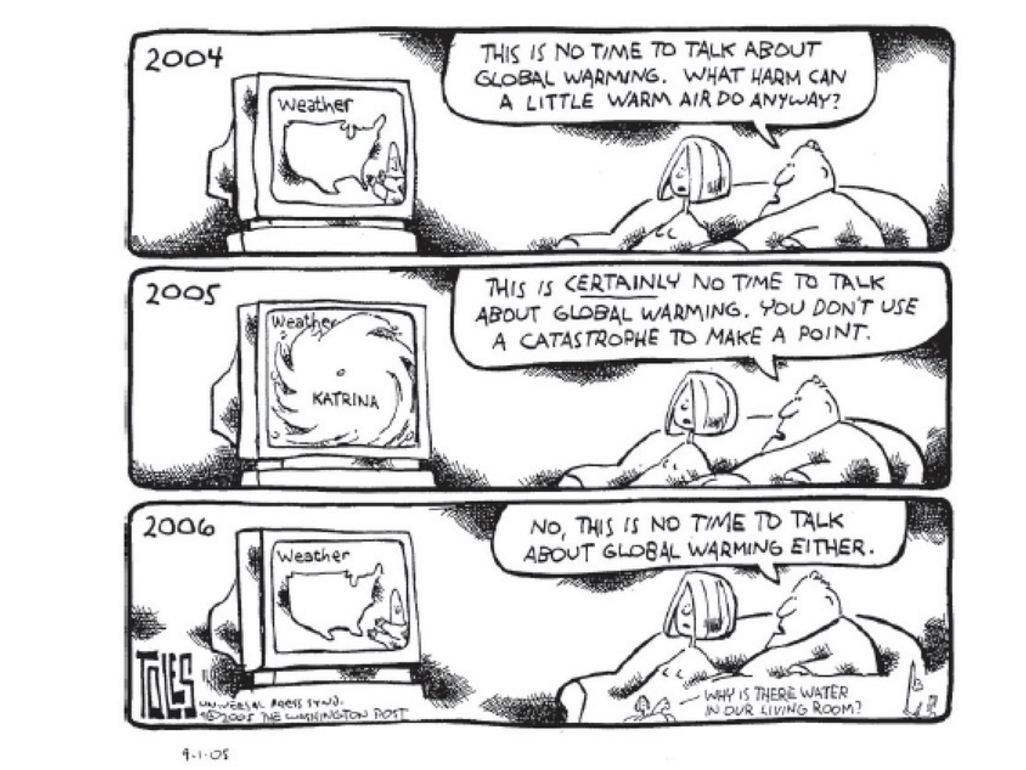Americans rarely talk about climate change — and they rarely hear about it in the media — a major new survey finds.
But that silence reinforces the dangerously wrong notion that climate change isn’t an existential threat requiring urgent action. And that’s why I believe one of the most crucial messaging lessons the climate movement can learn from the LGBT community is the need to have more conversations about an uncomfortable subject.
Only one in five Americans say they hear people they know talking about climate change “at least once a month,” according to a new survey of 1,278 adults by the climate change communication programs at Yale and George Mason University Center for Climate Change Communication.
Nearly two thirds of Americans (65 percent) report they discuss global warming with their friends or family “rarely” or “never”.

The result, according to an earlier Yale/GMU report, is a climate “spiral of silence” in which “even people who care about the issue, shy away from discussing it because they so infrequently hear other people talking about it — reinforcing the spiral.”
Indeed, in the new survey, the number one reason respondents gave for what “keeps you from talking about global warming with your family and friends” is that it “never comes up.” That’s a spiral we must break.
Even worse, humans use many mental shortcuts to deal with the overwhelming amount of information we must process. This is described in Nobelist Daniel Kahneman’s book Thinking, Fast and Slow.
One example of such a short-cut is: If few people around you are talking about a subject then it is unlikely to be a truly dangerous threat that demand immediate attention. And that is compounded by the media’s long-standing under-reporting and mis-reporting on climate change.
The new survey confirms the media contributes to the climate silence: “Only about four in ten Americans (43 percent) say they hear about global warming in the media once a month or more frequently.”
Politicians also rarely bring up subjects people aren’t talking about, and the media isn’t reporting on. This serves to reinforce the spiral of silence.
And, of course, the Trump administration has been working overtime to delete any mention of climate change on government websites, to discourage government employees from talking about climate change, and even to stifle a national conversation around climate change during record-smashing extreme weather events.
Learning from the LGBT community
The kind of aggressive climate action we now requires that we break this spiral of silence, much the same way the LGBT community broke theirs.
Not that long ago, many progressive politicians ran away from LGBT rights, and some even credit John Kerry’s 2004 loss to the issue. Yet in the past decade, we’ve seen a sharp swing in public (and political) support for LGBT rights. Many factors contributed to that shift, but strong communications strategy and tactics were key.
A crucial tactic was getting as many people as possible talking about LGBT issues. Marriage equality and climate change certainly aren’t exact analogies — but turning the issue around did require people to talk about an uncomfortable subject because it mattered to them personally.
So if you want to change the climate conversation, then help start the conversation. Yes, it is essential to take other actions, especially voting for candidates who support climate action and against candidates who don’t. But before, during, and after you do those things, you must talk about them to friends, family, and even strangers.
Until the climate spiral of silence ends, climate science and solutions will not triumph.

